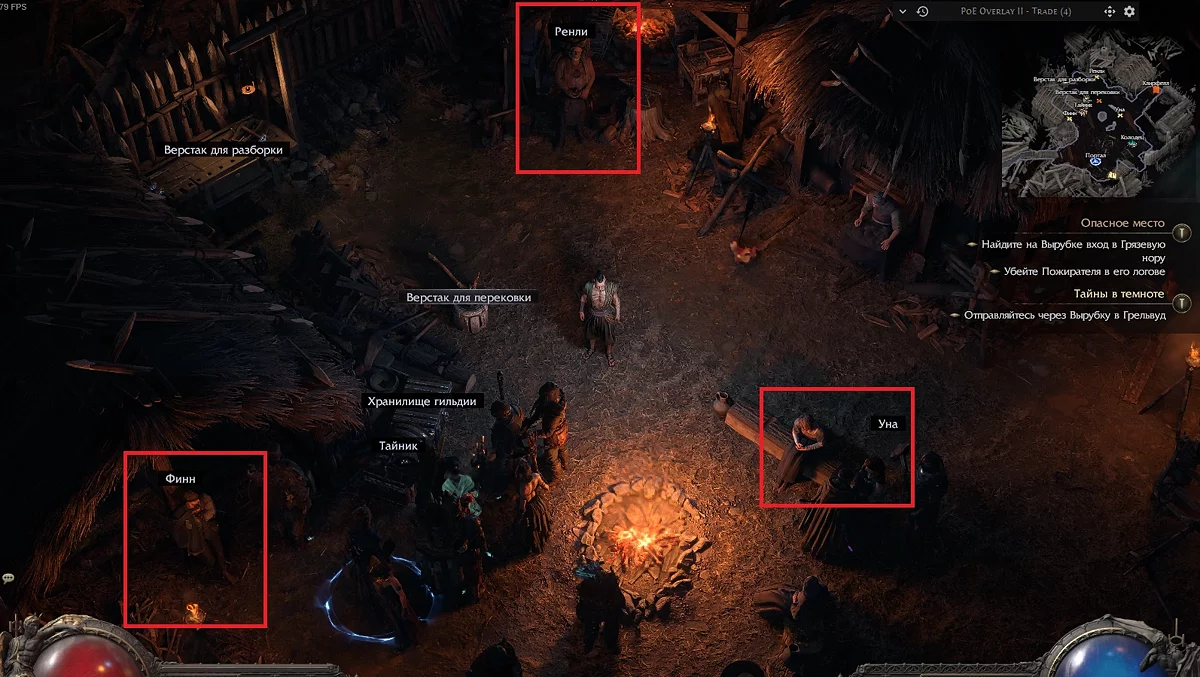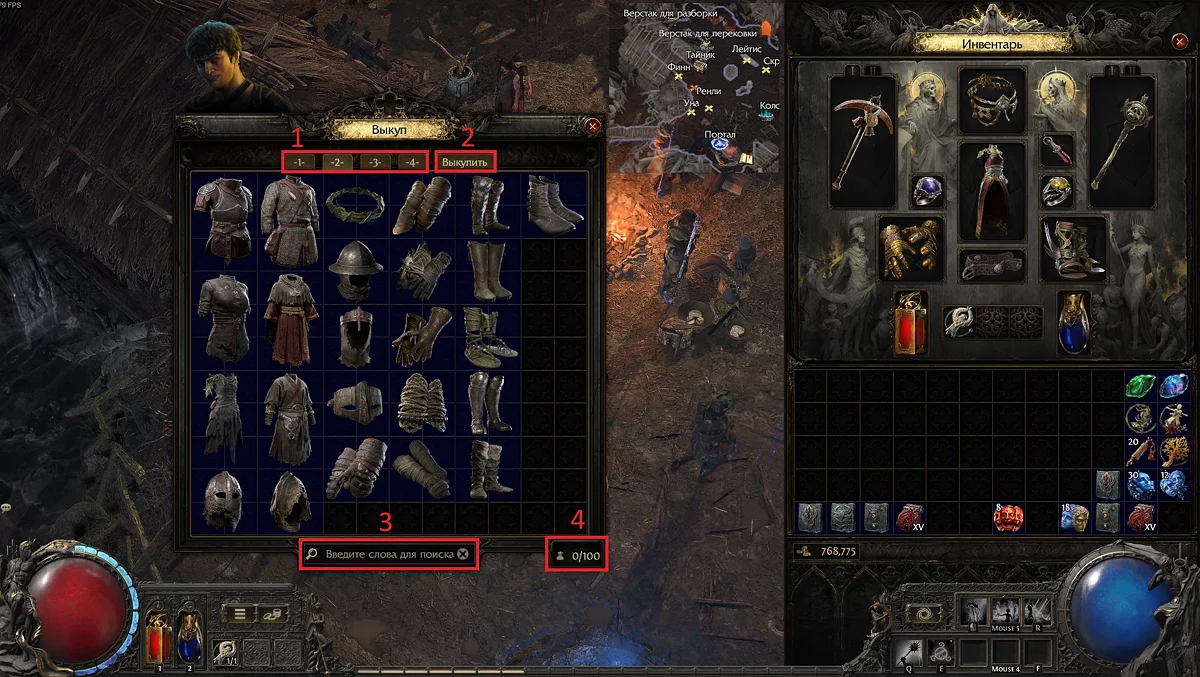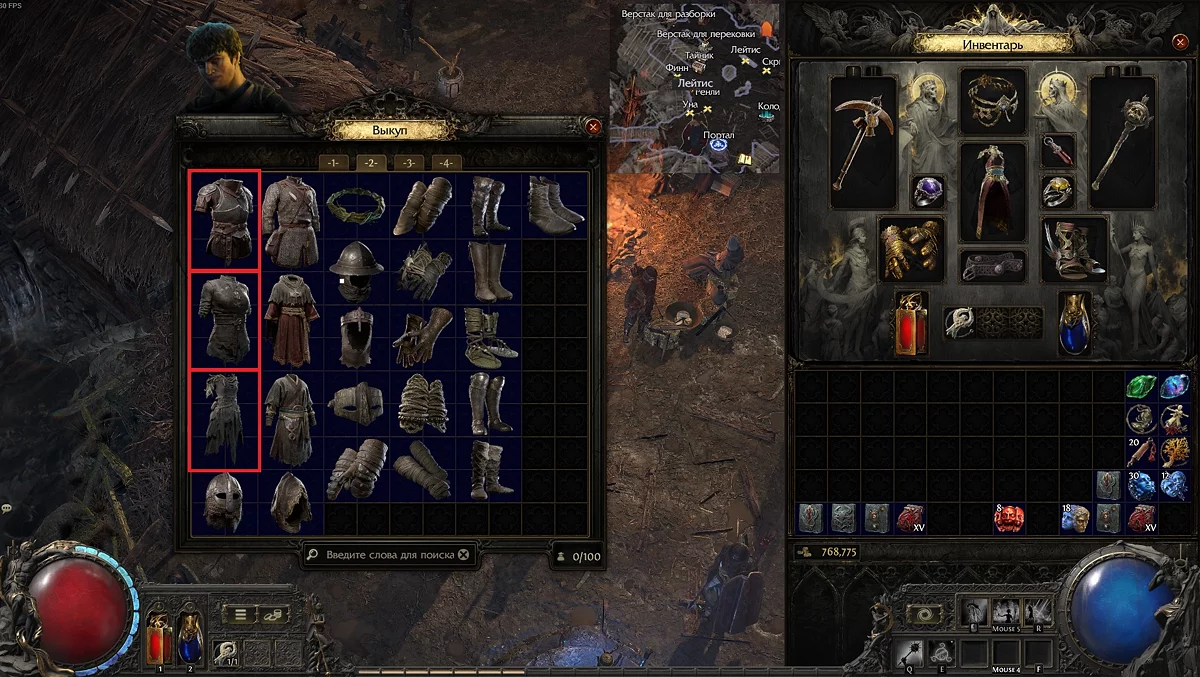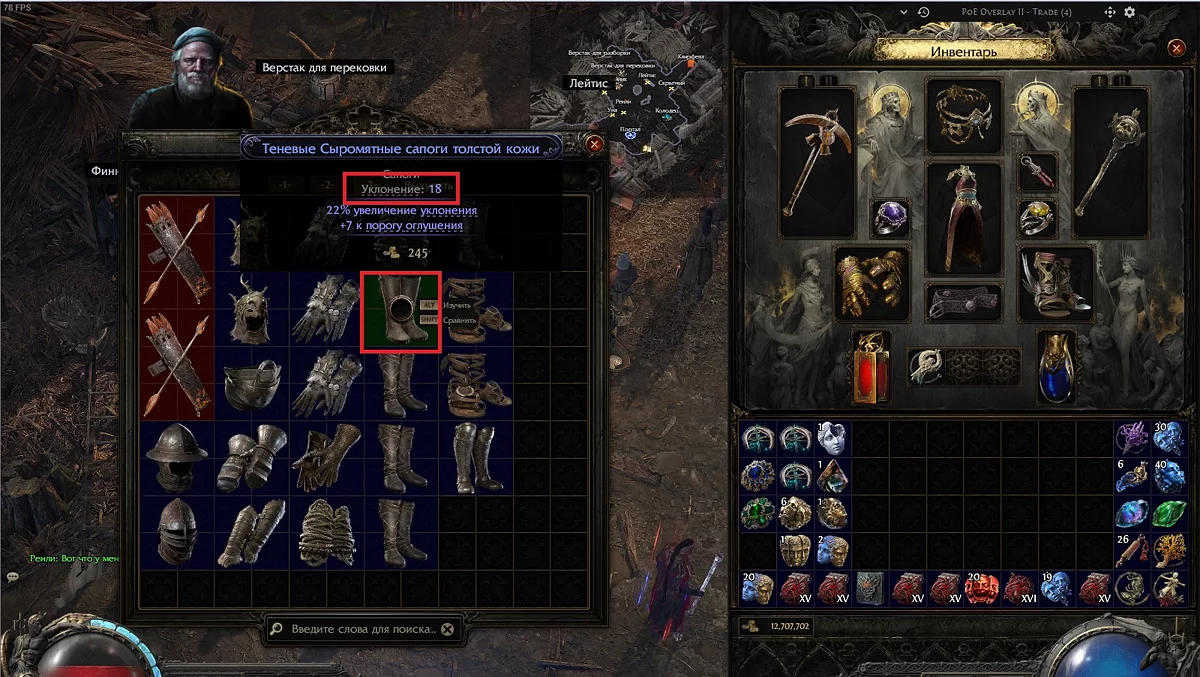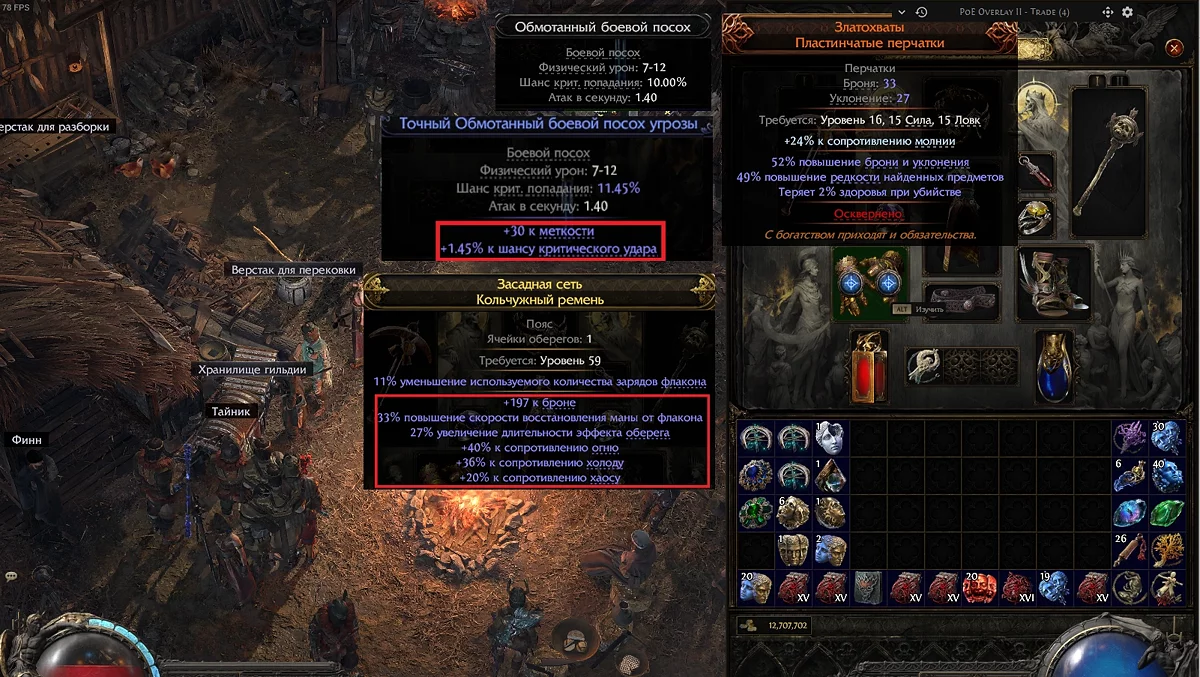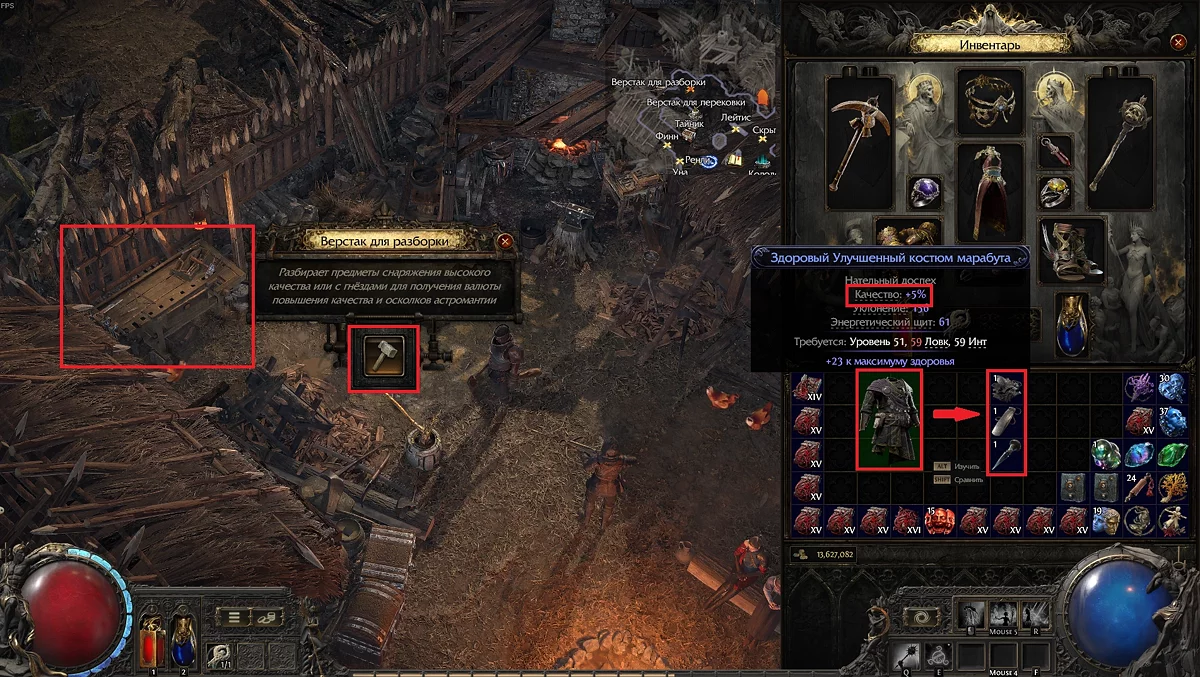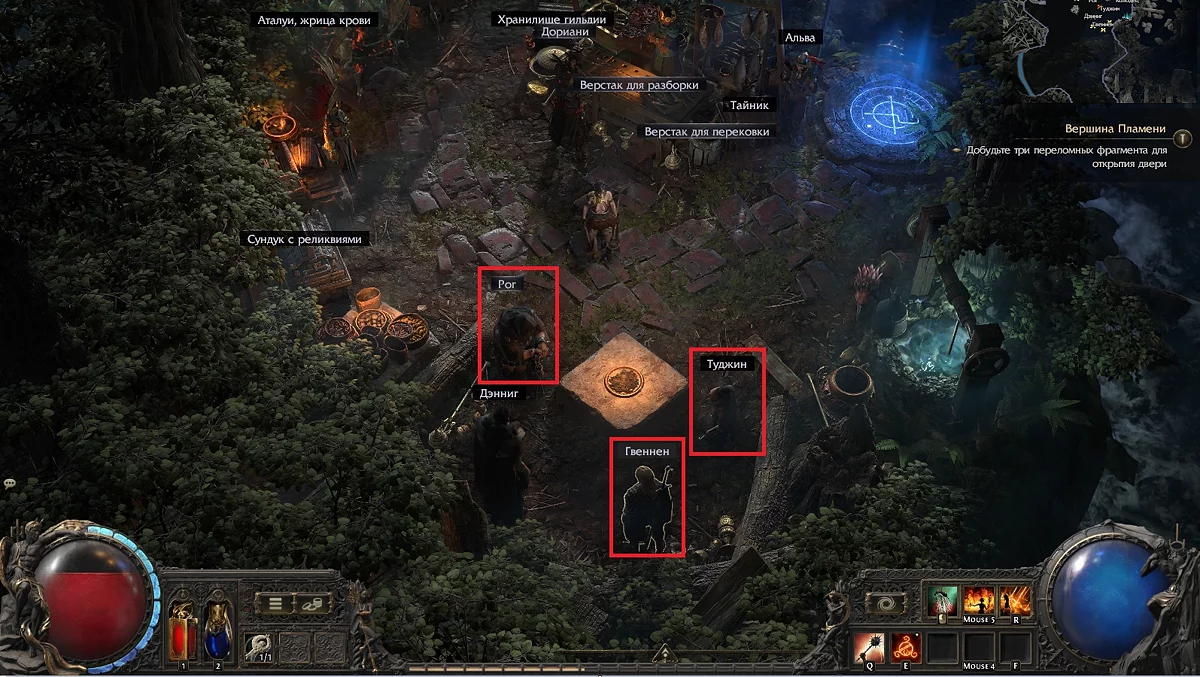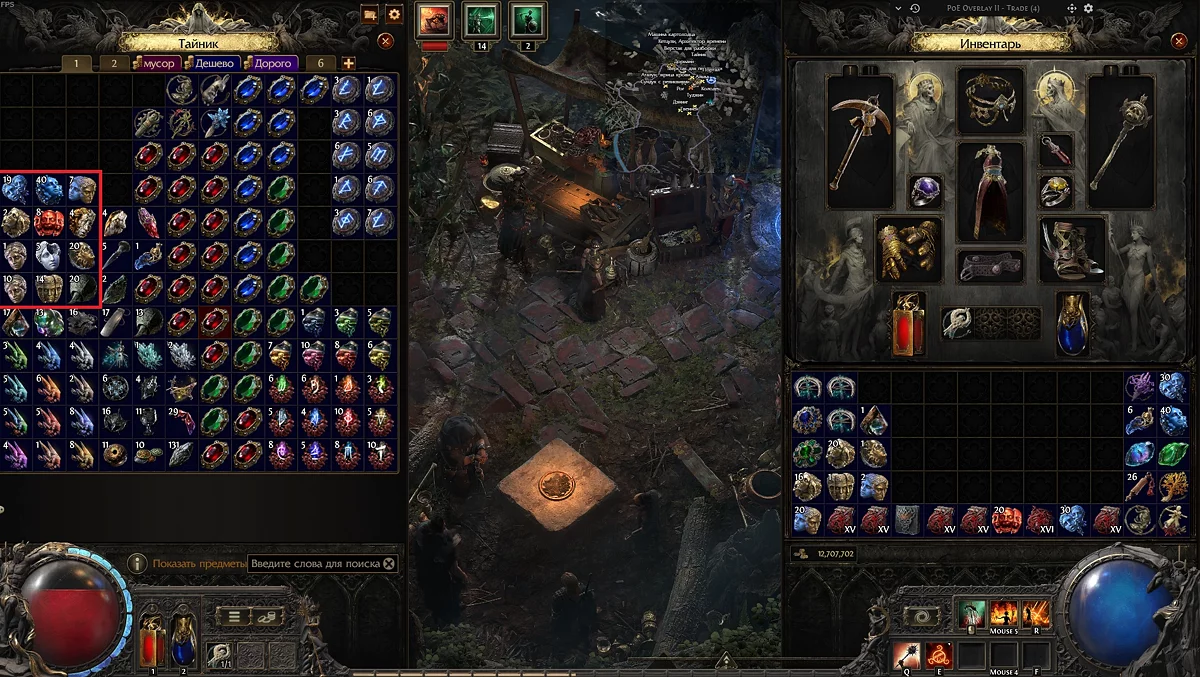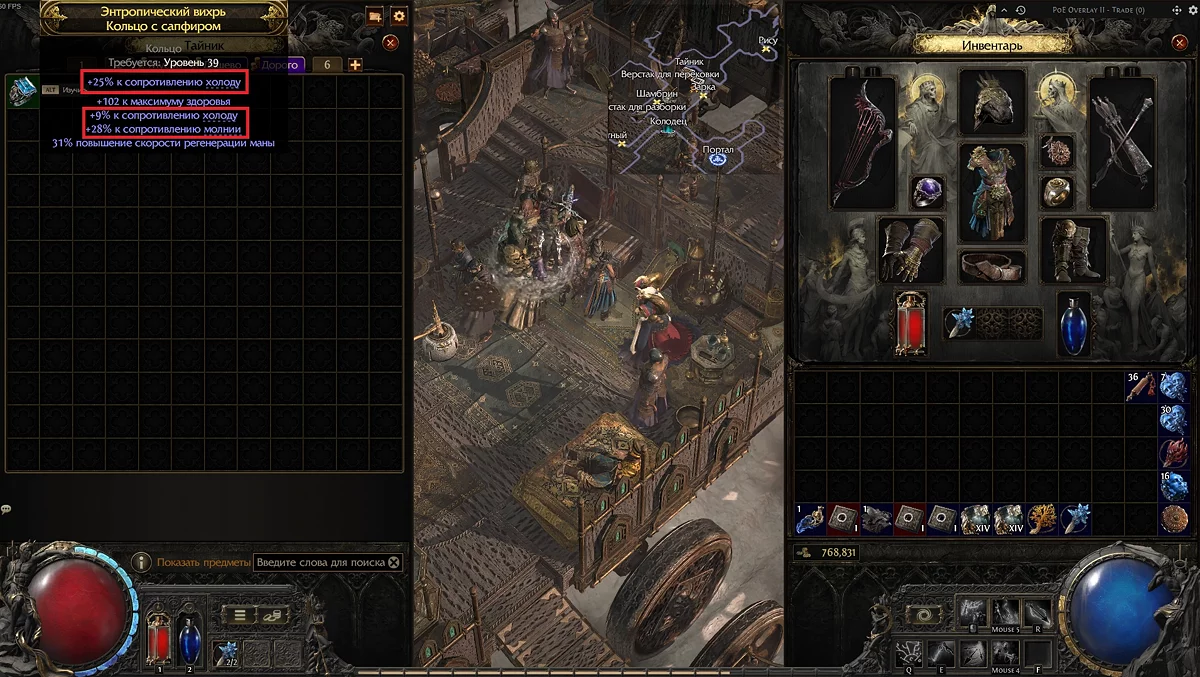Path of Exile 2 Trading Guide: Player & NPC Trade Tips
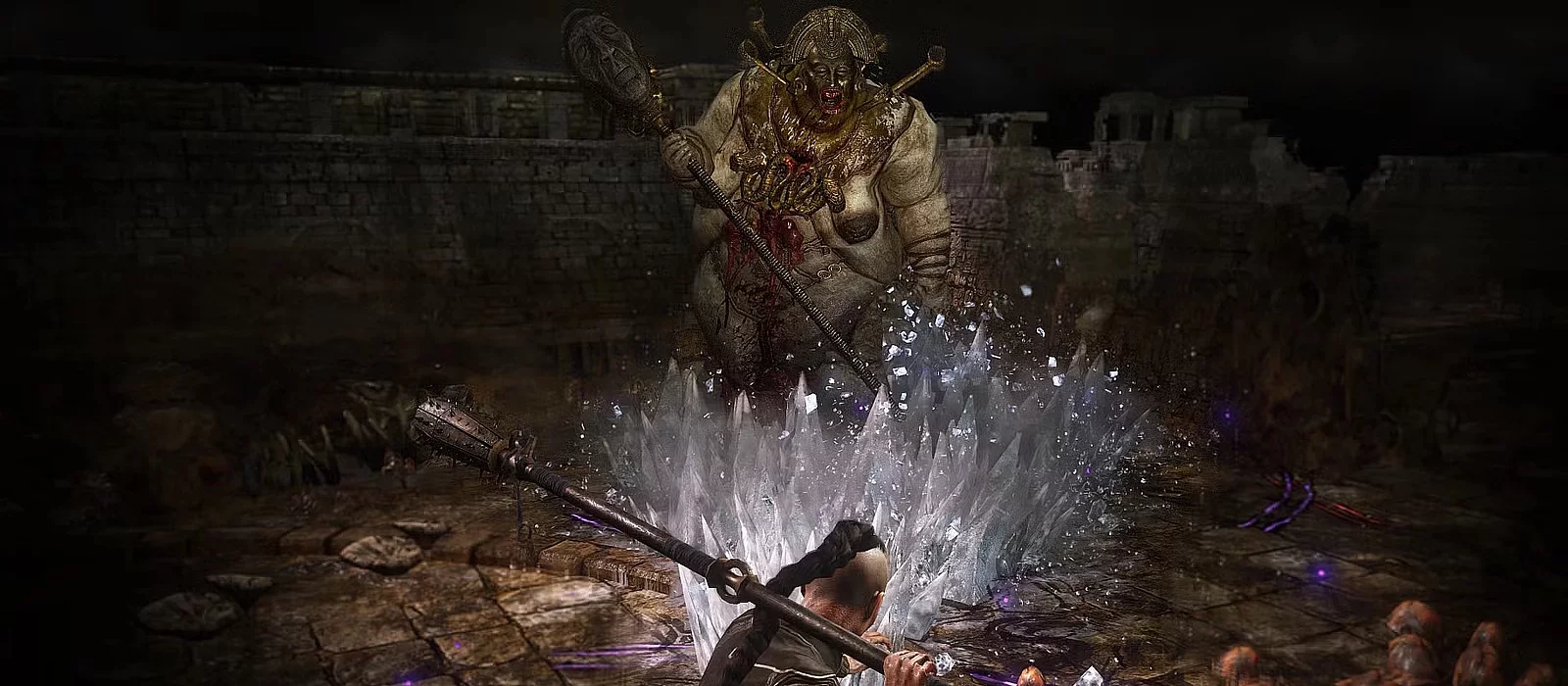
Path of Exile 2 is filled with many non-obvious mechanics and intricacies related to trading. An average player may require tens or even hundreds of hours to figure out all the tricks on their own. To save you time, we have prepared a guide that thoroughly covers all possible aspects related to trading.
In Path of Exile 2, trading can be divided into two categories:
- Trading with NPCs.
- Trading with other players.
Trading with Non-Playable Characters (NPCs)
In this section of the guide, we will share various tricks and tips that will help you quickly understand the mechanics of trading with non-playable characters in the game.
Basic Mechanics
After the first boss, we arrive at Clearfell Camp, where we meet the main story characters.
These same characters act as merchants. There are three of them, and each has their own special assortment. Click on the character and select "Trade". To purchase, simply drag the desired item from the merchant's window to your inventory, to sell, drag the item from your inventory to the merchant's inventory.
- Renly sells weapons for physical damage classes and various types of armor;
- Una trades weapons for wizards, as well as flasks to replenish mana and HP;
- Finn offers all types of equipment, but the player cannot know what characteristics the item will have upon purchase. In other words, Finn is a kind of casino with items. You can get either a blue quality item or a yellow one, regardless of your level or the number of completed quests.
Each act begins with the opening of a safe zone like Clearfell Camp. Characters in new zones will be different, but in each of them, you will still meet three merchants with a similar assortment as at the beginning of the game.
NPC Trading Window
Now let's move on to the nuances. For example, let's consider the trading window with Finn:
- Merchants have tabs with different types of goods.
- You can buy back an accidentally sold item, but you need to do this immediately. After leaving the location, items from the buyback tab will disappear.
- You can quickly find items with the modifiers you need by keywords.
- NPCs with random items have a limit on the number of purchases. It updates once a day, as well as upon completion of some story quests.
- The top armor has heavy plates, meaning it is suitable for a warrior, and such armor will provide an increase in armor;
- The second armor is leather and light, meaning it is suitable for an archer. It will provide evasion and a small amount of energy shield or armor;
- The bottom armor looks like a robe for a mage. The main characteristic of such armor is an increase in the energy shield.
Lifehack for the Random Item Merchant
To understand what a random item purchased from the merchant will provide, you can use the following tip. For example, we need boots that give an evasion bonus:
- Approach the character Renly and see which boots among his goods provide evasion.
- Then go to Finn and buy boots with a very similar or identical picture. Their main characteristic will also provide evasion.
Item Rarity
Equipment can have 4 types of rarity. We will distinguish them by the color in the item's name:
- Normal (white) — have no modifiers;
- Magic (blue) — contain up to two modifiers;
- Rare (yellow) — can have up to six modifiers;
- Unique (orange) — possess special characteristics not found in other items and often have fixed or partially random properties.
Note that unique items are not always more expensive than rare ones when selling to a merchant. And when trading with real players, a yellow item with a successful set of modifiers may cost dozens of times more than most uniques.
What Else Should You Know About Merchants?
- All items in the game can be sold to any merchant, and the price will not change.
- As you progress through the story, the number of items available for purchase from merchants will increase.
- The merchant's assortment changes once a day during the daily server restart and also after gaining a new character level.
- The higher the act, the more powerful the items available from the merchants of that act.
- Approximately one in three items from merchants with random items will be of rare quality, with a lower chance for jewelry.
- There is only a 1% chance that a merchant with random items will sell you a unique item.
- If you buy heavy armor from a merchant with random items, it does not mean its additional modifiers will necessarily suit a warrior. Heavy armor, for example, can receive +15 to intelligence.
Buy items with enhanced quality to then dismantle them at the dismantling bench. For this, we will receive items for improving equipment quality.
Click on the hammer icon in the bench window and select the equipment to dismantle. As a result, you will receive items for quality improvement. To enhance your equipment's characteristics, right-click on the obtained item and apply it to the desired gear element.
Why Buy Items from Merchants
The game's difficulty mainly depends on the character's equipment. If any item is inferior in characteristics, it's worth looking for a replacement from merchants. Gold is not used for trading with real players, so it quickly accumulates in your inventory. There's no point in saving it, especially until the sixth story act. After completing it, the endgame will open — the final stage of the game, where gold will be useful, especially for purchasing waystones.
How to Get More Gold
Collect gold and trophies from defeated monsters. Don't worry about accidentally selling quest items — all others can be safely sold to merchants.
In the first act, we recommend picking up all equipment for sale, except for normal quality gear. From the second act, focus on your need for gold. For example, we avoided collecting magical items that take up a lot of inventory space to avoid returning to merchants too often.
Endgame Merchants
After completing the last act, the final stage of the game will open for you, along with the opportunity to get your own hideout (personal safe zone).
On the final stage maps, you will randomly encounter three different merchants (Rog, Gwennen, Tujen). By completing their quests, gamers can obtain a separate type of currency (artifacts), specific to each of the 3 merchants.
After completing the map where you met the merchant, they will move to your personal hideout. There you can exchange the earned currency for items.
What Not to Sell to Merchants
We left this question for last because it's truly a complex topic to understand. At first, you will find it hard to grasp the value of the items you find. Initially, a few tips will suffice:
- Never sell orbs. At least until you clearly understand what they are for and their value among real players. Orbs look like faces and contain the word "orb" in their name. You will use them to enhance items. Moreover, orbs are the real currency in Path of Exile 2. They, not gold, are used by players for trading.
- Never sell items that take up 1 slot in the inventory and cannot be equipped on a character. Do not do this until you clearly understand their value among real players. It's better to store such items in the stash, and when you have the time and desire, figure out what they are needed for.
Which Items to Sell for Gold
If you are a beginner, to save time up until the last act, we advise selling any equipment that you have replaced with newer ones. The exception will be unique and rare items that have more than one elemental resistance modifier. Such items can be really valuable or help you gather elemental resistances for a boss fight, so store them in the stash.
What is the value of low-level items? It's easier to explain with an example. We have excellent boots for level 1. We leveled up the character and replaced them with level 35 boots, which have the same characteristics but are higher in numerical values due to the high level requirement. Does this mean that level 35 boots will be more expensive among real players than level 1 boots? Not necessarily.
The fact is that any other player, having completed the game once and gathered a lot of currency, can start the game again with a new character. They will create a new character and want the best possible boots for the early stages of the game. Fortunately, we have such boots. And now we are 60 exalted orbs richer, instead of the 100 measly coins we would have gotten by selling the boots to a merchant. Such a situation can occur at any level of the game.
Conclusion: you cannot accurately determine how much another player is willing to pay for equipment if you haven't gained enough gaming experience. Additionally, consider that you might also create a new character, and then you would need those very level 1 boots that you unknowingly sold to a merchant.
How to Determine the Value of an Item
- Use the official PoE website, where trading between players takes place.
- You will need to download an in-game overlay — a program that allows you to quickly determine the price of an item by comparing it with similar offers from other players. There are many such applications on the internet — choose the one that suits you.
-
Path of Exile 2: Best Classes for Beginners
-
Ultimate Guide: How to Increase Spirit in Path of Exile 2
-
Path of Exile 2: Guide to All Ascendancy Classes and How to Choose the Best One
-
Complete Path of Exile 2 Walkthrough: All Acts Guide & Gameplay Tips
-
Ultimate Witch Build Guide for Path of Exile 2
-
Next Level Pay-to-Win? Why Path of Exile 2 Fans Are Angry at Elon Musk?
-
Elon Musk Admits He Cheated in Diablo 4 and Path of Exile 2
